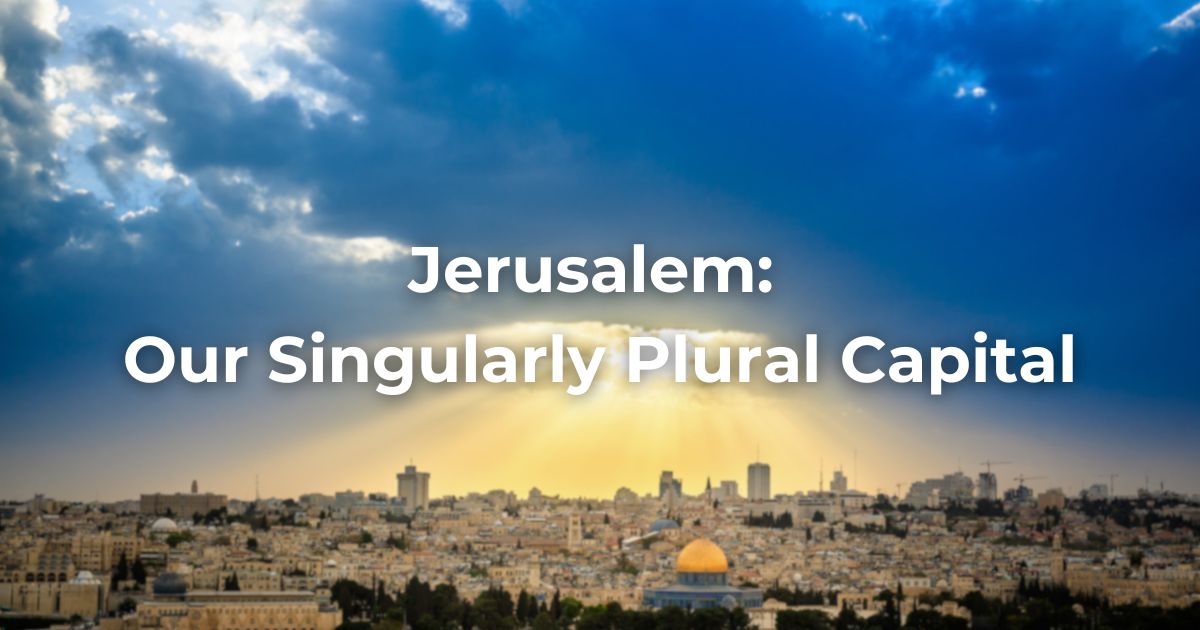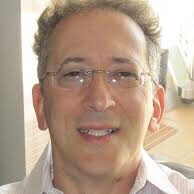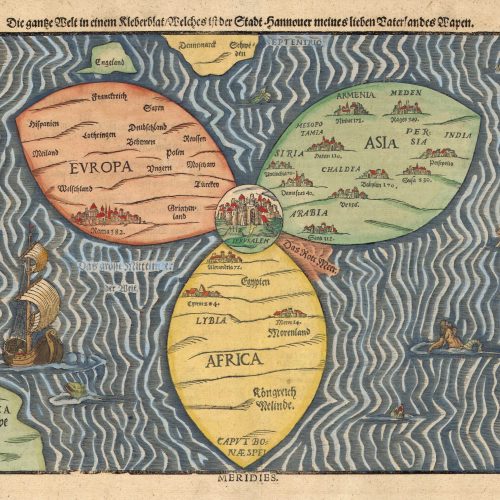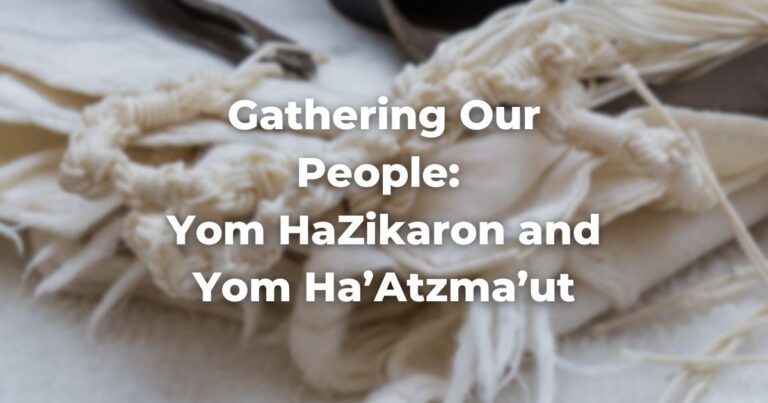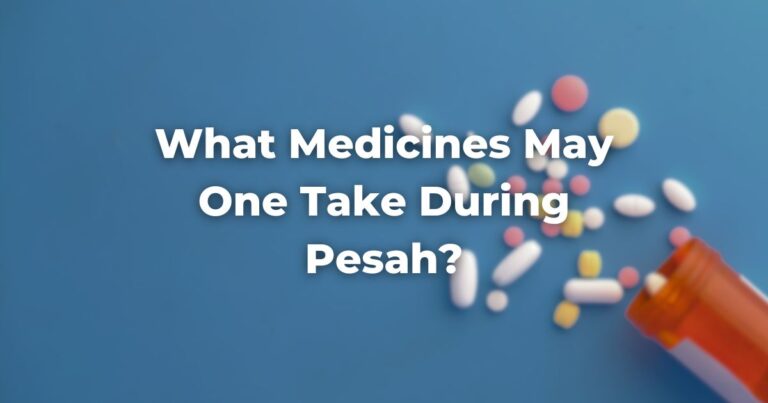Yom Yerushalayim (Jerusalem Day, this year it was sundown on May 18 to May 19), recalls the time during the Six Day War, when we regained access to the Old City of Jerusalem. It was seen as a unifying moment for the Jewish people, with hopes for more significant unifying actions that would be with and for all the peoples of the Middle East.
And why not? The unifying nature of Jerusalem has been sensed for centuries. Indeed, medieval maps rendered Jerusalem as the center of the universe. See, for example:
But what qualifies Jerusalem to be considered a unifying universal capital? I suppose that many answers could be offered, but let’s consider this.
Certainly one important consideration is accessibility. Yet throughout history Jerusalem has been highly inaccessible. It’s actually off the beaten track, up in the mountains, and far from the great highways that have existed to its East and to its West.
Furthermore, Jerusalem is not a port city and does not have access to the coast. Therefore ships can’t reach it. Indeed, no rivers run through it, providing the additional challenge to her residents of having no natural source of water.
So, nu, why was it chosen? Psalm 132 offers the following idea:
כִּי־בָחַר יְהֹוָה בְּצִיּוֹן אִוָּהּ לְמוֹשָׁב לוֹ׃
Ki vachar Hashem b’Tsiyon i-va l’moshav lo.
HaShem has chosen Zion, desiring it for Divine habitation.
The psalmist’s point is that Jerusalem has spiritual properties which are simply unmatched anywhere else. Those of you who have been privileged to visit Jerusalem know what I mean. The k’dusha, the holiness of the city, permeates throughout, and we experience this. It is palpable. It is spiritually rejuvenating and uplifting for us all.
The Singularity of Plurality
The properties of the city are furthermore expressed through the name of the city; the name is in the plural, Yerushalayim, “Jerusalems.” Now, only a few words in Hebrew have no singular. For example, mayim, “water.” Even one drop of water is mayim (literally, “waters.”) Perhaps that’s because water is the basic substance that sustains life everywhere; it’s in the atmosphere and in every cell of every living thing. Water is spiritual, and unifying.
Similarly, the word “shamayim,” the heaven/s: even one tiny piece of the sky is shamayim, in the plural, perhaps because the sky and atmosphere link all humanity, the entire earth, together. Heaven is spiritual, and unifying.
A third such singular word in plural form is chayim, “life.” Even one second of life is chayim, literally “lives.” That is perhaps because life has so much potential, and life is social–we were not meant to live alone, not by ourselves and not for ourselves. Life is spiritual, and (should be) unifying.
So too with the name Yerushalayim. It’s a city in the plural because its spirituality can affect and inspire everyone. Today, it’s a city that is holy to Judaism, Islam, and Christianity. It’s a city bustling with people of many nationalities, cultures, and languages.
Its spirituality seems to be Jerusalem’s compelling feature.
King David wanted it for his capital not because of its Jewishness (it was not a Jewish city then), but because its spirituality gave it an aspect of unifying peoples. He hoped to bring together not only north and south, but all the peoples among whom Jews lived. As medieval mapmakers knew, Jerusalem is spiritual, and unifying.
Therefore on Yom Yerushalayim, let us celebrate that for 56 years, we have had unfettered access to all of Jerusalem and can bask in its spirituality. But we also pray that its unifying essence again prevails in our world, bringing all of her citizens together in a unified vision, and bringing Israel and all her neighbors together in a productive, meaningful, and lasting peace.
Yom Yerushalayim samei-ach. A joyful and meaningful Jerusalem Day.
(See more: I fought in Jerusalem in 1967: A Yom Yerushalayim Reflection)
Author
-

Rabbi Dr. J.B. Sacks (he/him) is the spiritual leader of Congregation Beth Shalom (Palm Desert, California). The first openly LGBTQ+ rabbi in the Conservative Movement, Rabbi Sacks is an advocate for inclusion in Jewish life and social justice. His most recent publication is Psalms in the Key of Healing. Rabbi Sacks is the eighteenth generation of rabbis on his mother’s side and lives with his husband Steven Karash in Palm Desert, California. They have an adult son, Evan.
View all posts

